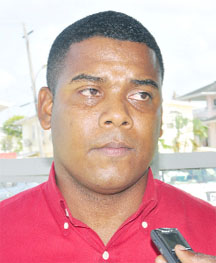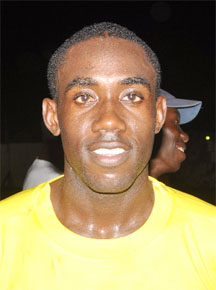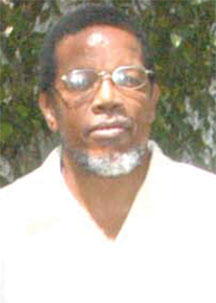Sport has always been a passion of mine and now as a sports journalist I’m actually living my dream.
And I keep track of the wide cross-section of media reports on sports, locally and internationally.
Many articles by journalists and columnists often call on officials and other stakeholders to give account of their stewardship in their special sports discipline, thereby establishing the public’s “right to know”.

However, as a practitioner, I sometimes find the task a daunting, uphill battle simply because too many sport officials and by extension the associations they govern seem to spurn the doctrine of transparency.
And then journalists are severely lambasted for highlighting unflattering news items.
Many operate as if every criticism is an attack and a threat to their agenda but at other times the same media is ‘wined and dined’ when all seems rosy.
When the reports are negative oftentimes journalists are accused of being “irresponsible and biased, peddlers of half truths and lies” and a whole host of other disparaging descriptions are hurled our way.
This is not to say that we get it right all the time, because sometimes “the runner stumbles. . . We pick ourselves up, dust ourselves off.”
But the truth is, all is not well with a number of our sports associations in Guyana and this also includes the Sport Ministry and the National Sports Commission.
The officials in these associations indulge in a charade that everything is cooked and curried and then operate with hostility when sources within their own ranks speak out about some shortcomings.

Whether the sources have their own axes to grind is beside the point since the point remains that something is amiss. Therefore these matters have to be placed in the public domain – that’s how a democracy thrives.
For the past two weeks Stabroek Sport has been reporting on the saga surrounding the Guyana Football Federation (GFF) and the Georgetown Football Association (GFA), along with its other affiliates. The GFA president Vernon Burnett wants voting rights restored to them for the upcoming elections on April 16. The same is required by the Upper Demerara Football Assoc-iation (UDFA). However, it is unsure at present what will be the outcome of the Congress prior to the elections and whether these rights will be restored.
Further, Stabroek Sport also learnt late yesterday afternoon that the GFA and UDFA have to submit their Constitution, audited financial report of 2010, a list of its executive members, a list of its registered players, banks statements, their calendar of events for 2011 and the Minutes of their last Annual General Meeting.
The GFA has outlined its position time and again in the media, albeit with some exclusions and alterations regarding the exact behind-the-scenes goings on. This publication has tried repeatedly to secure a comment from the GFF, the governing body for football in the Guyana, but to no avail.
I was accused of being irresponsible and one-sided but no comment on the real reasons for these associations not having voting rights has yet been given by the GFF. There are many reasons and insinuations as to why rights are not granted to these bodies but it would be irresponsible, to say the least, to mention these without any evidence or statement from the GFF to facilitate a clearer understanding.

There was also the case concerning national footballer, Devon Millington, being overlooked for international duty when a comedy of errors was staged by the GFF point men. When this publication had contacted the GFF for a comment General Secretary Noel Adonis said Millington was not selected because the GFF was using a lottery system whereby other persons may have an opportunity to play.
However, one week later, GFF President Colin Klass, who has headed the body since 1989, stated publicly at a press conference that he had no knowledge of any lottery system. The GFF failed in both these instances to provide a suitable explanation, keeping the public in the dark.
There were also cases with the Guyana Cricket Board (GCB) and the widespread financial irregularities and numerous misgivings, which eventually prompted a forensic audit of the Board’s operations by the Office of Friendly Societies, which falls under the Ministry of Labour. Throughout these appalling proceedings the GCB executive were tight lipped despite many formal requests by media operatives.
There are also many other instances of this sort of practice indicting others in the local sports arena.
But the question is: Do these bodies actually have something to hide or are their officials trying to cover up their own ineptitude? This is, however, an exercise in futility since one cannot conceal being weak or inept.
The media will always remain the watchdog.
Many of the officials who find themselves in the hot seat want us to be responsible in our reportage but I dare ask, are you very cooperative when we try to get a holistic view on the issues?
So until such time responsible journalists will have to continue being a thorn in the sides of sports associations in their quest for the truth simply because of the mandate not to be public relations officers in defense of weak causes but to be watchdogs of the public and their interests.





